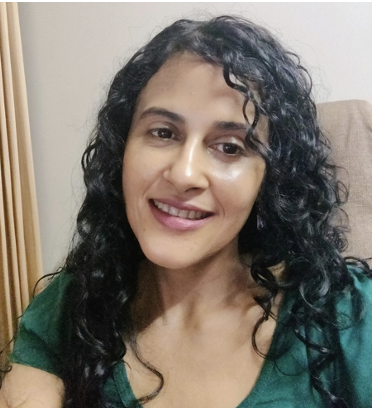
Today there’s a buzz about decolonizing evaluation. But then who owns and drives monitoring evaluation and learning (MEL)? My name is Rituu B Nanda, a member of the International Evaluation Academy, and I am humbled to share what I have learned from communities on community ownership, Community-led M&E, and my role at Global Fund for Children?.
Theoretical discourses on ‘leaving no one behind’ are essential but not sufficient. While attention has been directed towards change at the higher level, the potential of local communities has been sidelined. Effecting transformative change necessitates a paradigm shift in our approach to these communities.
In the initial years of my career, a large part of my work was M&E in an international organization. We disbursed funds to communities? or to non-profit organizations working with communities. However, I found that program activities often stalled after the project. With experience, I realized that a genuine power shift occurred when authority went from the funding agency beyond the community group or NGO to those in the community with lived experience.
I realized that people from outside the community, no matter how good their intentions, needed to change their ways. This included me and I felt the need to develop skills in community engagement. The SALT approach (Share, Appreciate, Listen, learn and Transfer) from the organization, Constellation, aided my journey to unlearn from being an expert to being a facilitator.
When we combine listening with genuine appreciation and a will to learn from the experience of others, we recognize the inherent value and knowledge that each person possesses – that they are the experts – prompting a gradual relinquishing of control to allow communities to pursue their own “development.”
I have observed that communities too have been conditioned to believe that external experts hold the key to solving their problems. Consequently, a role of facilitators is to rekindle the intrinsic capacity of communities and their confidence to lead change. In this reciprocal process lies the foundation for community-owned change.
For instance, when I begin to facilitate community-led research, community groups often refused to participate, commenting that research is for “experts” and PhDs. However, working with NGO staff to adopt a SALT approach, communities realize their own capacities and take ownership process, collecting and analyzing data for their own use.
Lessons Learned
- Institutions alone can’t solve the world’s problems. People have a role in creating change for themselves.
- Participation in evaluation alone is insufficient, but community ownership needs to be prioritized throughout the entire program, from the design and implementation to self-assessment. The Community Life Competence process helps communities to pinpoint what to evaluate so that the evaluation process emerges from and is owned by them.
- Perceiving community involvement in evaluation solely for program assessment is limiting. Communities should also assess progress towards their vision and determine the program’s contribution to it. In this way, they can use data for their own understanding and improvement.
- Facilitation is a vital skill for navigating complex processes. The SALT approach can be a powerful way to develop facilitation skills. This approach guides facilitators to understand that their role is not that of an expert or one who provides recommendations, but rather helping groups to be evaluative in their lives.
Rad Resources
In addition to the resources hyperlinked above, I welcome you to join a global online community of practice on Community Ownership in MEL & Research under Asia Pacific Evaluation Association.
Do you have questions, concerns, kudos, or content to extend this aea365 contribution? Please add them in the comments section for this post on the aea365 webpage so that we may enrich our community of practice. Would you like to submit an aea365 Tip? Please send a note of interest to aea365@eval.org . aea365 is sponsored by the American Evaluation Association and provides a Tip-a-Day by and for evaluators. The views and opinions expressed on the AEA365 blog are solely those of the original authors and other contributors. These views and opinions do not necessarily represent those of the American Evaluation Association, and/or any/all contributors to this site.

Thanks Rituu your words resonate to me, this is what AfrEA seeks to support thru the #MadeInAfricaEvaluation thinking that is going on, and the #IndegenousEvaluation movement/concept
Hi – many thanks for your posting. I agree 100%: “People have a role in creating change for themselves.” For those interested in tools to help make that happen I am recommending my lastest book Empowerment Evaluation and Social Justice: Confronting the Culture of Silence. It provides practical tools to help build capacity (and help people help themselves through evaluation). Wishing everyone the best and happy holidays. – David
Thanks, Rituu for sharing excellent ideas and lessons learned.